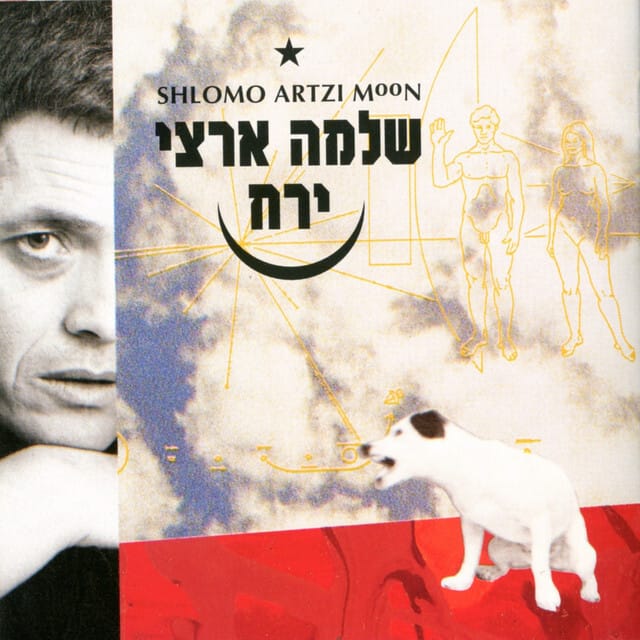- The Weekly Mensch
- Posts
- The Weekly Mensch: Shlomo Artzi
The Weekly Mensch: Shlomo Artzi
A journey through the experience of a singer of truth, passion, and unity
Us in a Nutshell
We are passionate about the lives, the impact, and the experience of Jewish baby boomers who have changed our world. From finance to the arts, we write about the stories of contemporary heroes who — significantly and meaningfully — changed the face of their respective industries, often starting with nothing but a legacy of exile. We tell their stories for the timeless lessons of intelligence, ethics, and resilience they underline. And we also share some fun anecdotes! Nathan Tob is a fourth-year student at the Queen Mary University of London. He studies Economics, Finance, and Management. Davy Sokolski is a third-year student at Columbia University in New York. He studies International Political Economy.
What is a Mensch?
Leo Rosten defines mensch as “someone to admire and emulate, someone of noble character.” Dr. Saul Levine writes in Psychology Today that a mensch’s personality characteristics include decency, wisdom, kindness, honesty, trustworthiness, respect, benevolence, compassion, and altruism.
Shlomo’s Rapid Bio

Shlomo Artzi, born on November 26, 1949, in Alumim, Israel, is one of Israel’s most beloved and enduring musicians, known for his poetic lyrics, heartfelt performances, and deep connection to Israeli culture. Raised in a family of Holocaust survivors—his father, Meir, was a journalist, and his mother, Yona, escaped from Romania during World War II—Artzi grew up with a profound sense of history, resilience, and identity, themes that would later define his music.
His musical career began during his IDF service, where he was a lead soloist in the Nahal entertainment troupe, a prestigious musical unit that produced many of Israel’s future stars. His breakout moment came in 1970 when he won first prize in the Israeli Song Festival, propelling him into national fame. However, despite early success, Artzi’s career stalled in the mid-1970s, and his albums failed to gain traction. Instead of giving up, he reinvented his sound, shifting from conventional pop to deeply personal, poetic rock music. This transformation, culminating in his 1978 album "Gever Holech Le-Ibad" (A Man Losing Himself), marked the beginning of his ascent as Israel’s "National Singer."
From the 1980s onward, Artzi became a household name in Israel, known for songs that captured the country’s joys, pains, wars, and dreams. His music often reflects the Israeli experience, addressing themes of love, peace, loss, and identity. Songs like "Ahavtia" (I Loved Her), "Hi Lo Yodat Ma Over Halay" (She Doesn't Know What's Going on With Me.), "Yareach,"(Moon) and "Ha’ahava Hayeshana" (The Old Love) have become anthems, deeply embedded in Israeli culture. He has sold millions of albums, filling stadiums for decades, and remains one of Israel’s top-selling artists.
Beyond music, Artzi has been an active voice for peace and social justice, supporting various humanitarian causes. His ability to bridge generations and political divides through music has cemented him as one of Israel’s most influential and unifying figures.
At over 50 years in the industry, Artzi continues to perform, his concerts a celebration of Israeli resilience, nostalgia, and hope. Through his storytelling, raw emotion, and timeless melodies, Shlomo Artzi is more than just a singer—he is the soundtrack of Israel’s modern history.
Shlomo’s Life Lessons
1. Keep the fire alive
Shlomo Artzi’s music is more than just melody—it’s the heartbeat of a nation, carrying the weight of history, the ache of longing, and the fire of resilience. Through war and peace, loss and hope, his songs have become Israel’s soundtrack, playing in Tel Aviv cafés, on long desert drives, and in the hearts of those who seek comfort in his words. But Artzi’s true gift isn’t just his storytelling—it’s his relentless passion. Unlike many artists who fade into nostalgia, Artzi refuses to coast on past success. His concerts still sell out instantly, not just because of his legacy, but because he performs with the same intensity, vulnerability, and love as he did decades ago. One of his signature traditions is running through the crowd mid-concert, touching hands, locking eyes, making each person feel as though he’s singing just for them. Even as he grows older, he won’t slow down, won’t retreat, won’t let his passion become routine. When asked why he still does it, why he still pours his soul into every lyric, he simply said: “Because I still believe. In love, in people, in music. When you believe, you don’t stop.”
Passion isn’t something you lose—it’s something you choose to keep alive. It’s easy to let time wear down our enthusiasm, to let routine replace excitement, to convince ourselves that our best years are behind us. But Artzi’s life is proof that passion isn’t dictated by age or circumstance—it’s fueled by choice. What truly matters isn’t just how brightly we burn, but how fiercely we refuse to let the fire go out.
2. Sing through the storm
Shlomo Artzi’s career is a testament to perseverance, resilience, and the power of staying true to one’s voice—even when the world doubts you. After winning Israel’s prestigious Song Festival in 1970, he was expected to soar, but his first albums fell short of expectations. For nearly a decade, he faced commercial setbacks and skepticism about whether he’d ever succeed. Yet, he never chased trends or compromised his artistry. Instead, he kept writing, kept performing, and kept refining his craft. By the 1980s, he had cemented himself as Israel’s most beloved singer-songwriter. His persistence mirrors Israel’s own spirit—pushing forward despite obstacles, adapting without losing identity, proving that heart and consistency outlast fleeting trends. Even in moments of national crisis, Artzi’s music has been a unifying force. He has sung for soldiers before battle, for grieving families in mourning, for a nation searching for hope. His songs became anthems of resilience, reminding people that while pain and hardship are inevitable, the music must go on. Reflecting on his journey, Artzi once said: “The only way to win is to stay on stage. Just keep going. Keep singing. Keep playing.”
Success isn’t about avoiding setbacks—it’s about pushing through them. Life rewards those who show up, who stay the course, who refuse to let failure define them. The world doesn’t always recognize talent immediately, but persistence, authenticity, and an unshakable commitment to your purpose will always lead to something greater. Whether on stage or in life, those who endure are the ones who keep going.
3. Stay true, no matter the noise
For over five decades, Shlomo Artzi has navigated shifting musical trends, political landscapes, and an evolving Israeli identity. Yet, through it all, he has remained uncompromisingly himself—singing about love, pain, war, and hope with raw honesty and deep personal conviction. Unlike many artists who reinvent themselves to chase popularity, Artzi has always stayed true to his essence. A defining moment came early in his career. After representing Israel in Eurovision in 1975 and struggling with commercial success, many expected him to pivot toward mainstream pop. Instead, he chose a different path, crafting Gever Holech Le’ibud ("A Man Losing Himself")—a deeply introspective, poetic album that redefined his voice and connected with a generation. It was a risk, but one that paid off. By staying true to himself, Artzi didn’t just find success—he built a legacy.
The people who leave a mark aren’t the ones who follow the crowd—they’re the ones who carve their own path. In a world that constantly pressures us to conform, Artzi’s story is a reminder that true impact comes from unwavering authenticity. Success isn’t about pleasing everyone—it’s about having the courage to stand firm in what you believe, no matter the noise.
The Quote of the Week
“It was a time when happiness came through anger, we laughed at everything, burned whatever we touched, embraced the trouble, and simply said, Yesterday was good, and so will be tomorrow.”



Reply